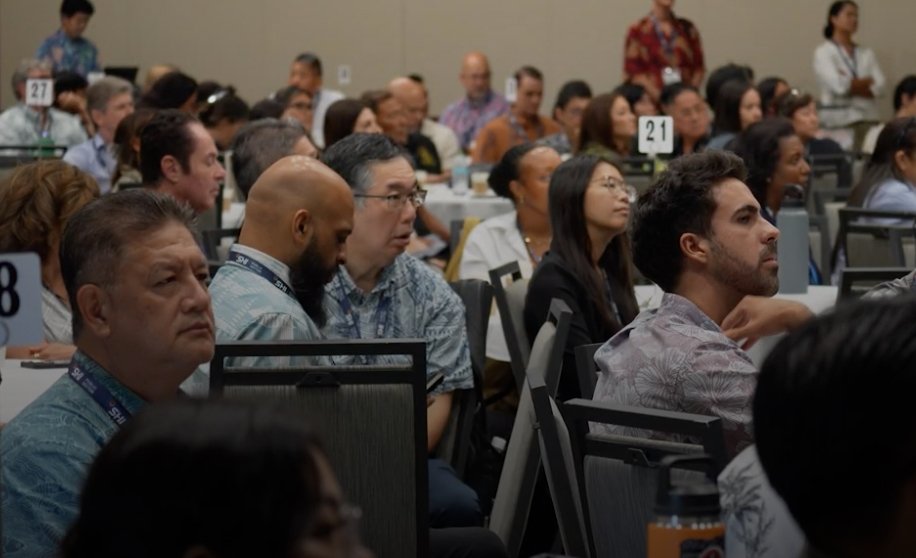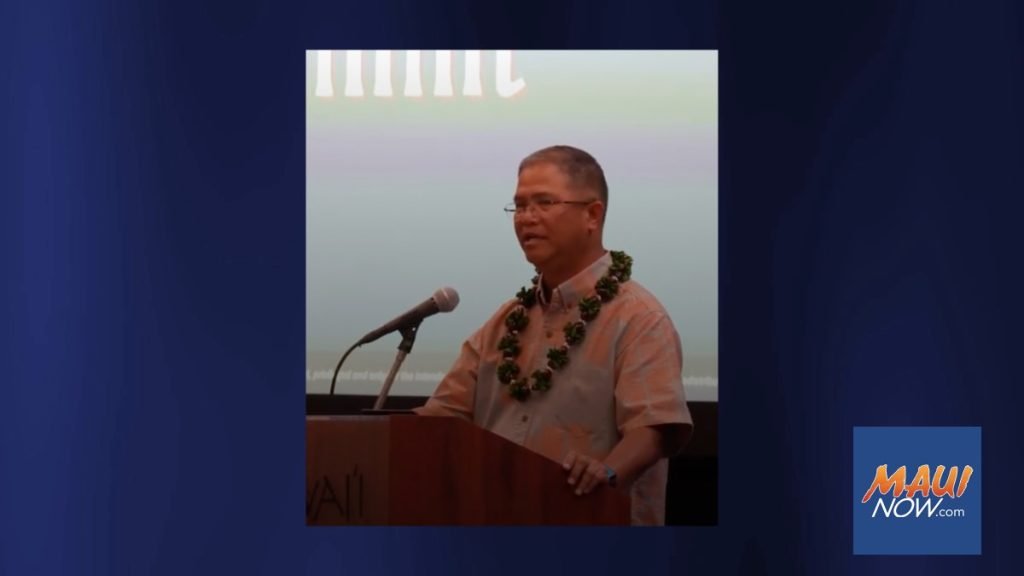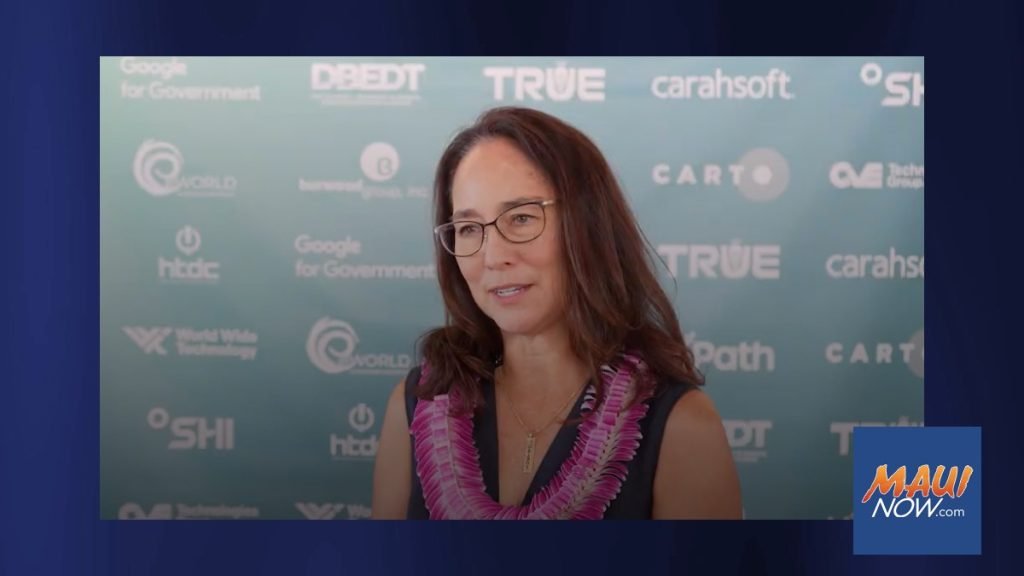Tools & Platforms
Can AI help Fort Worth realtors? One broker’s new company leans into the technology
It’s not unusual to see longtime commercial real estate broker Jordan Johnson with the latest gadget or testing the newest technology.
He has always been intrigued by entrepreneurship and technology throughout his 30-year career.
Aside from being an admitted fan of the latest and greatest, Johnson dove seriously into the entrepreneurial space.
He founded founded technology-focused companies such as eRealty.com, said to be the first brokerage to bring the multiple listing service or MLS database online; Xpressdocs.com, a firm that evolved from contract automation to high-end marketing collateral, serving major brands such as Coldwell Banker and Century 21; and LonestarGourmet.com, an online company focused on Texas cuisine that he later sold.
Along the way, Johnson, a fifth-generation Fort Worth native, has had a storied career as a commercial real estate broker. Early on, he began with the development of the Deep Ellum area in Dallas. He then transitioned into commercial retail, where he brokered several high-profile transactions, including the sale of riverfront property in his hometown to Pappas Restaurants.
“I’ve spent decades in brokerage and just as long early-adopting technologies that make work more efficient,” Johnson said.
No surprise then that Johnson couldn’t resist the growing marketplace for AI tools, particularly in exploring how artificial intelligence could be applied to the real estate brokerage space.
The result gave rise to Pecos Automations, a Fort Worth-based AI-driven automation platform he believes can revolutionize brokerage operations — and expand into other industries as well.
“After 30 years in commercial real estate, I know what true expertise looks like,” Johnson said. “With AI, expertise is accelerated. It shortens learning curves, compresses sales cycles and replaces busy work — so people can focus on what matters.”
Pecos Automations builds smart systems that automate lead generation, client communication and repetitive tasks so brokers can focus on deals, relationships and strategy, he explained.
“At small agencies, things can fall through the cracks,” he said. “AI can help a small agency keep up and offer some of the same services as a larger agency.”
To set up Pecos Automations, Johnson researched what technology was available and what tools made the most sense for the real estate community.
“I tried one after another and I finally arrived at building our own platform,” he said.
The platform is a combination of a handful of off-the-shelf technologies to achieve workflow automation for the clients.
“Those tools are just getting better, so we’ll update and change tools as that happens, so our customers are getting the latest,” he said.
Johnson, who is currently senior broker associate with Team & Vasseur Commercial Real Estate, used AI tools recently when he drove around two clients looking at properties in Weatherford.
Instead of doing what he and most other brokers would do — stop and take notes about the pros and cons of each — Johnson informed the clients he would record their conversations.
By the time they got back to their offices, Johnson delivered them a detailed report with bullet points on the sites visited, the clients needs and details about next steps in the process thanks to AI tools.
“We’re driving. It’s hard to take notes. You just can’t, so this just reinforces what we’ve talked about, and that’s the type of power these tools have,” he said.
Among the tools Pecos offers are AI-powered lead capture, automated follow-up workflows, customer relationship management, property marketing, instant text responses, revenue tracking dashboards, broker-client chatbots and marketing tools.
With his platform, AI can know everything about a property just by uploading a brochure to the program, Johnson said.
“So if someone calls, it can answer questions about square footage, all the basics, right away or they can be sent a brochure on a property,” he said. “I talk to people who are looking to buy property all the time and they’ll say, ‘I called the person about that property, and I haven’t heard back yet and it’s been two weeks.’ This would stop that kind of thing that really annoys clients.”
The current generation of AI tools are more accessible to smaller companies, not just large enterprises, enabling broader adoption and innovation, Johnson said.
“Smaller one- and two-person shops who previously had to wait on the price of new technologies to drop can take advantage of some of these tools at minimal cost,” he said.
Pecos Automations’ offerings will be priced based on the size of the real estate firm, Johnson said.
“We’re not a big company. We practice what we preach, and AI allows us to be more efficient as well, so it’s going to be extremely reasonable,” he said.
Johnson drew inspiration for the Pecos brand from West Texas and the Big Bend region to celebrate wide-open spaces and the freedom to work smarter from anywhere.
“The Pecos River is a metaphor,” Johnson said. “When done right, automation gives you space — space to be creative, present, human.”
While Pecos Automations is launching with a focus on commercial real estate, Johnson sees applications for the platform in other industries such as construction, roofing, health care, veterinary services, and food and beverage.
He suggests experimenting now with AI because the tools will only get more complicated in the next few years.
“Start easy and work your way up,” he said. “Things are changing quickly.”
Johnson is hardly alone in offering AI and technology tools to the real estate market.
According to a report from Fortune Business Insights, the global property technology market size was valued at $36.6 billion in 2024 and is projected to grow from $40.2 billion in 2025 to $88.4 billion by 2032.
Bob Francis is business editor for the Fort Worth Report. Contact him at bob.francis@fortworthreport.org.
At the Fort Worth Report, news decisions are made independently of our board members and financial supporters. Read more about our editorial independence policy here.
Related
Tools & Platforms
Profusa Deploys NVIDIA AI to Build AI-Driven Insight Portal for Continuous Biomarker Monitoring

What You Should Know:
– Profusa,, a digital health company, has announced the adoption of NVIDIA technology to power a new AI-driven insight portal for continuous biochemistry monitoring.
– The portal will be used in combination with Profusa’s Lumee oxygen optical hydrogel sensors and reader system, extending the company’s AI-enabled tools to remote patient monitoring settings. Profusa anticipates an early 2026 rollout of the portal in the European Economic Area (EEA).
– Profusa believes that real-time biochemistry data across a large population is a data set currently missing for AI-enabled healthcare improvements. By combining its Lumee platform with NVIDIA NeMo hardware and software, Profusa plans to build a scalable, AI-fueled technology backbone to improve personalized sensor data accuracy and connect real-time sensor data with electronic medical records (EMR).
Redefining Healthcare with AI-Fueled Workflows
The new portal is designed to provide physicians with “trustworthy, always-on insights” rather than just more dashboards. It aims to translate raw optical signals from the sensors into reliable biometrics and provide actionable clinical context.
Expected capabilities and features of the physician portal include:
- Agentic clinical workflows: An AI-powered assistant that integrates with EMRs, wearables, and home devices to help with notes, orders, care plans, remote monitoring, and triage.
- Time-aligned health data graph: A longitudinal view that combines Profusa biomarkers with EMR data, claims, wearables, genomics, and social determinants to power predictions and coaching.
- Guardrails by design: The system will use policy-aware orchestration to enforce clinical scope, data privacy, and safe responses.
- Model training options: The platform will allow for parameter-efficient tuning and post-training refinement of Profusa’s AI signal processing and clinical reasoning components.
“We believe that real-time biochemistry data across a large population is a data-set that is currently missing to enable the fulfillment of the promise of AI-enabled improvement in healthcare. Profusa is uniquely positioned to provide this proprietary data set, linking therapeutic decisions with real-time biochemistry changes, to generate valuable insights that are lacking today.” Ben Hwang, Ph.D., Profusa’s Chairman and CEO commented, “By combining our Lumee platform with the industry leading NVIDIA NeMo hardware and software stack, we plan to build an AI-fueled, scalable technology backbone for better personalized sensor data accuracy and real-time sensor data connections with electronic medical records (EMR), facilitating treatment and outcome predictions, in addition to establishing a robust data base for clinical literature for disease management.”
Tools & Platforms
Will AI replace human workers? The CIA, Anthropic, OpenAI and Microsoft weigh in

Flanked by high-level employees from OpenAI, Microsoft and Anthropic, the CIA’s chief artificial intelligence officer said that humans must remain “in the loop” as artificial intelligence tools become more powerful and prevalent.
CIA AI officer Lakshmi Raman said the agency is placing a strong emphasis on making sure AI is closely monitored for how it helps workers enhance their skills.
“It’s all about how AI can assist and amplify the human, with the human keeping an eye on everything that’s happening,” Ms Raman said during a panel discussion on Friday at the Billington Cybersecurity Conference in Washington.
Her comments come amid concerns that AI’s ability to automate various processes that might lead to major labour disruptions and widespread unemployment.
Sean Batir, the panel discussions moderator and principal technology lead for Amazon Web Services, echoed those sentiments.
“There’s definitely a fear of having these [AI] models in workplaces, and I think that role you mentioned of having humans always in the loop is one way to address that,” he said.
Jason Clinton, chief information security officer at Anthropic, said humans need to take a supervisory role with the implementations of AI, and that despite the ability of the technology to increase efficiencies, soft skills that only humans can offer will be paramount.
“You know, the one of the things that the models will never be able to do is to bring humanity to the equation,” Mr Clinton added.
Joseph Larson, the vice president of government at OpenAI, whose ChatGPT sent AI interest to unprecedented heights in 2022, said the company’s goal is to develop the technology for the benefit of humanity, adding that OpenAI has hired a chief economist to look into potential economic ramifications.
Despite fears, Mr Larson said AI does not automatically mean a reduction of workers.
“It lends itself to creating more organisational output, like improved organisational output,” he added.
OpenAI, Microsoft and Anthropic, among others pouring billions into AI development have sought to expedite the adoption of their tools, but also provide ways for government workers, students and others to try to reduce the learning curve through various initiatives.
Those efforts, however, are coming up against mounting fears of redundancies, cutbacks and hiring slowdowns stemming in part from AI.
Recent studies have also led some to wonder if fears of AI’s potential impact on the labour sector are overblown.
An MIT Media Lab report recently stated that despite billions being spent over the past few years on AI investments, approximately 95 per cent of organisations have produced zero returns so far.
That report, however, has come under intense scrutiny over the methodology used to reach that conclusion.
Meanwhile, for US technology companies both old and new, and aspiring technology companies all over the world, the investment in AI shows no sign of slowing down.
For many humans, AI tools are slowly but surely becoming a part of their daily routines, even with polling suggesting many fears about what that could mean in the long term.
Tools & Platforms
Hundreds turn out for AI and Cloud Innovation Summit at the Hawaiʻi Convention Center : Maui Now

The fourth annual Hawaiʻi AI and Cloud Innovation Summit drew nearly 500 professionals, educators, and technology partners to the Hawaiʻi Convention Center on Wednesday, highlighting the state’s commitment to exploring technological innovation.
The state Department of Business, Economic Development and Tourism presented the event in partnership with Google Public Sector and the TRUE Initiative. Discussions focused on how artificial intelligence and cloud technology are being applied in real-world scenarios.

“Today was about having real conversations about what’s working, where the gaps are, and how we can continue learning from one another,” said department Director James Kunane Tokioka. “It was great to see leaders from across government, education, and the private sector coming together to explore how we can use technology to better serve our communities and strengthen Hawaiʻi’s future.”
Christine Sakuda, the state’s chief information officer, said the summit aimed to showcase Hawaiʻi’s innovative AI and Cloud technology projects, and to “bring in expertise from the continent, on what else is going on in the world that we could leverage in Hawaiʻi, because we’re doing some great work in Hawaiʻi that’s a model for the rest of the world.”

Artificial intelligence “is really there as a tool and an enabler,” she said. “It doesn’t replace people by any means. It’s really there to help people do their jobs better and more effectively.”
Sakuda said she hoped summit attendees came away feeling inspired and having a better understanding of artificial intelligence and Cloud technology. Then, they can take what they’ve learned and apply it to their work or personal lives, she said.
“Because AI can be intimidating,” Sakuda said. “There’s so many state workers here that are learning and being inspired about all the technology.”
Summit attendee Kevin Olival, associate dean for research at the College of Tropical Agriculture and Human Resilience at the University of Hawaiʻi, said he was excited to learn more about AI and how it could be used in his work at the university.

Workflow can be streamlined and research made more efficient, Olival said, adding that he appreciated the opportunity to network and meet people to learn what they’re doing with technology statewide.
“I think we need to embrace it,” he said of AI. “If we’re afraid of it, then we won’t make advances.”
At the same time, “I think that we need to put in the right safeguards,” he said. “That’s a critical component, but I think that unless we really embrace it and play with it; we’re not going to advance things and learn.”
The summit featured keynote speakers, panel discussions and breakout sessions that showed how AI is being used to improve government services, support small business growth, enhance cybersecurity and expand career opportunities for local residents.
-

 Business2 weeks ago
Business2 weeks agoThe Guardian view on Trump and the Fed: independence is no substitute for accountability | Editorial
-
Tools & Platforms1 month ago
Building Trust in Military AI Starts with Opening the Black Box – War on the Rocks
-

 Ethics & Policy2 months ago
Ethics & Policy2 months agoSDAIA Supports Saudi Arabia’s Leadership in Shaping Global AI Ethics, Policy, and Research – وكالة الأنباء السعودية
-

 Events & Conferences4 months ago
Events & Conferences4 months agoJourney to 1000 models: Scaling Instagram’s recommendation system
-

 Jobs & Careers2 months ago
Jobs & Careers2 months agoMumbai-based Perplexity Alternative Has 60k+ Users Without Funding
-

 Podcasts & Talks2 months ago
Podcasts & Talks2 months agoHappy 4th of July! 🎆 Made with Veo 3 in Gemini
-

 Education2 months ago
Education2 months agoMacron says UK and France have duty to tackle illegal migration ‘with humanity, solidarity and firmness’ – UK politics live | Politics
-

 Education2 months ago
Education2 months agoVEX Robotics launches AI-powered classroom robotics system
-

 Funding & Business2 months ago
Funding & Business2 months agoKayak and Expedia race to build AI travel agents that turn social posts into itineraries
-

 Podcasts & Talks2 months ago
Podcasts & Talks2 months agoOpenAI 🤝 @teamganassi















